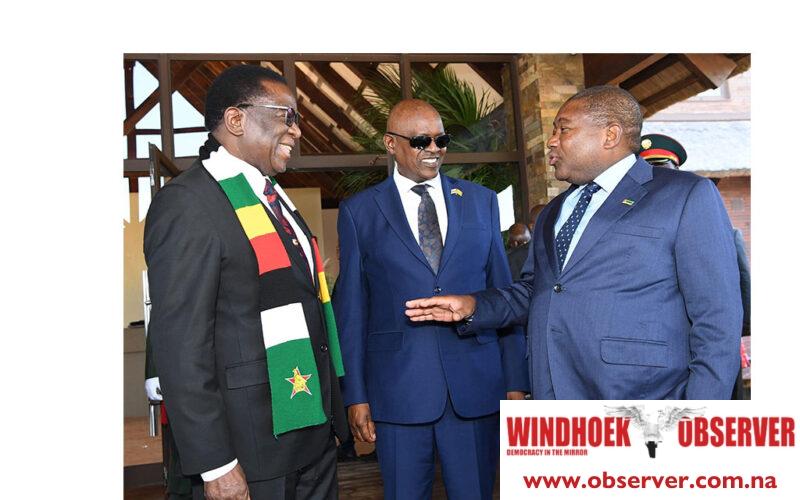CHAMWE KAIRA
Botswana is planning several rail links with its neighbours including one with Namibia. Botswana already with Mozambique and Zimbabwe have expressed interest to invest in a multimodal regional port and transport infrastructure project that aims to mutually benefit the countries and the region as a whole, Botswana’s Ministry of Transport and Works told Observer Money.
Botswana is also developing the Trans-Kalahari Railway (TKR) line project with Namibia. The project aims to construct a railway line from Walvis Bay to the coalfields at Mmamabula in Botswana, complete with rolling stock locomotives and wagons and maintenance facilities. The project will also see the construction of a terminal where trains will be off-loading coal to enable loading on ships at Walvis Bay.
The ministry said Botswana, Mozambique and Zimbabwe have proposed for a development of a deep seaport at Ponta Techobanine, in Maputo Province in Mozambique and heavy haul railway line for transportation of trade commodities including minerals, fuel, agricultural produce and general merchandise within the framework of the Onshore Deep Sea Port and Heavy Haul Railway Line, Ponta Techobanine Project (PTP).
The ministry said three governments have signed a Memorandum of Understanding (MOU) towards the development of this project and are committed to share responsibility for mobilizing financing for both upstream and downstream activities.
“The PTP will require a strong business case for investment, preferably through private sector participation and will need preparation of feasibility studies. The proposed infrastructure is intended to optimize distances and travel times between the economic hubs of the three countries whilst providing an option for avoiding congestion on existing regional railway routes. This is expected to enhance the competitiveness of the railway networks that are currently operational with the view to boost national and regional freight traffic,” the ministry said.
The member states have agreed on the need of feasibility study. The objectives of the study are to provide preliminary assessment of the feasibility of the PTP, to identify key requirements for further development of the project and to recommend an appropriate approach for private sector participation, if this is found to be feasible, the ministry added.
“The study will identify the preferred new railways and port facilities and other investments required, and provide a preliminary assessment of the likely technical, economic, financial and environmental and social feasibility.”
Furthermore, the objective of the study will be to establish an objective basis for the three governments to develop a shared understanding of the proposed project and how it may be carried out, including how best to go about arranging for private sector participation.
The ministry said considering that it takes considerable time to develop such kind of projects, it is imperative that the three governments maximize the utilisation of the existing railway lines while packaging this project.
“The existing railway lines are linked but they present different capacities. Therefore, an assessment of the total railway lines is necessary to identify areas of intervention along the Limpopo Corridor.
Timelines on the PTP project will be communicated as the project unfolds as they are still under discussions,” the ministry said.




